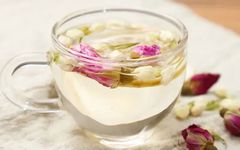Autumn Dietary Therapy and Medicinal Cuisine Guide


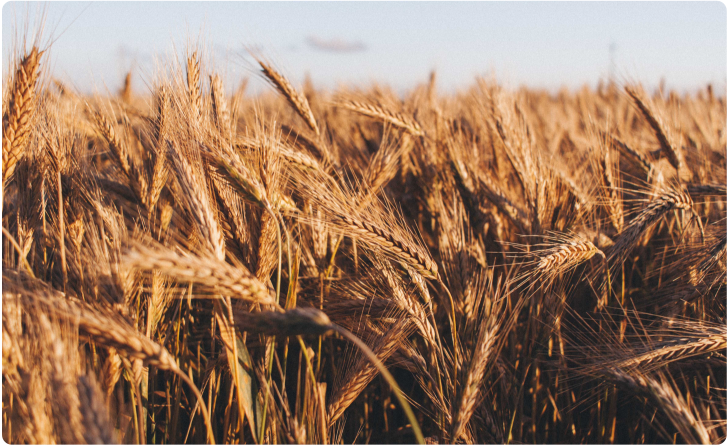
 From a health preservation perspective, after the Mid-Autumn Festival, the weather turns cooler, and everything gradually withers. The temperature difference between morning and evening increases, making it essential for the body to receive care. We have specially recommended five medicinal dishes for you: one tea, one porridge, one soup, and two dishes, which are both seasonal and health-preserving. This weekend, why not try making them at home? The specific methods are as follows:
From a health preservation perspective, after the Mid-Autumn Festival, the weather turns cooler, and everything gradually withers. The temperature difference between morning and evening increases, making it essential for the body to receive care. We have specially recommended five medicinal dishes for you: one tea, one porridge, one soup, and two dishes, which are both seasonal and health-preserving. This weekend, why not try making them at home? The specific methods are as follows:
Rose and Jasmine Flower Tea
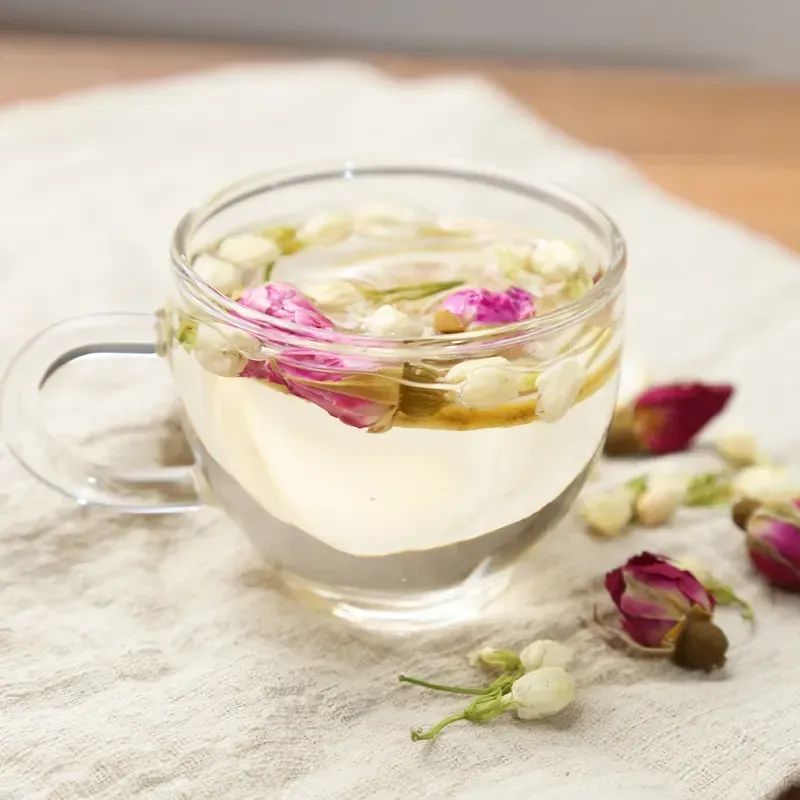
Ingredients: 3g of rose petals (Mei Hua), 3g of jasmine flowers (Mo Li Hua).
Method: First, place the rose petals and jasmine flowers together in a teacup, pour boiling water over them, cover the cup, and steep for 5-10 minutes. This tea can generally be steeped 3-5 times.
Effects: The tea is fragrant and palatable, strengthens the spleen, regulates the middle, and generates fluids to quench thirst.

Osmanthus Porridge
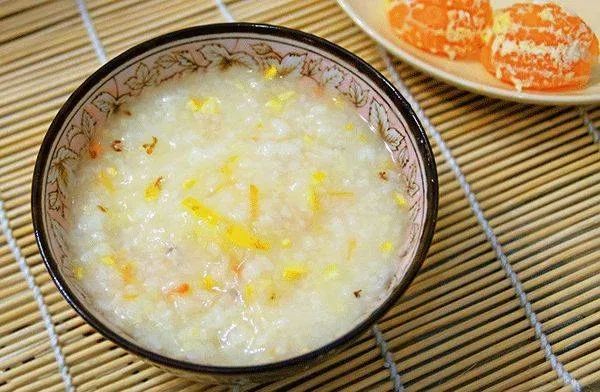
Ingredients: 5g of fresh osmanthus flowers (Gui Hua), 100g of japonica rice (Jing Mi), 5g of brown sugar (Hong Tang).
Method: First, remove impurities from the fresh osmanthus flowers and rinse them clean with water. Wash the japonica rice thoroughly. In a pot, add clean water and the japonica rice, cook until it becomes porridge, then add the osmanthus flowers and brown sugar, stir well, and bring to a boil again.
Effects: The porridge has a delightful aroma, awakens the spleen, refreshes the mind, transforms phlegm, and disperses stasis.

Black Fungus and Walnut Stewed Tofu

Ingredients: 30g of black fungus (Mu Er), 7 walnuts (He Tao), 200g of tofu (Dou Fu), salt, monosodium glutamate, and sesame oil to taste.
Method: Soak the black fungus in water until it expands, wash it clean, and remove the skin from the walnuts. Place the walnuts and tofu in a clay pot, add an appropriate amount of clean water, and stew until cooked. Add salt and monosodium glutamate to taste, and drizzle with sesame oil before serving.
Effects: Crispy and delicious, nourishes yin, clears heat, tonifies the heart, and benefits the kidneys.

Pineapple Duck
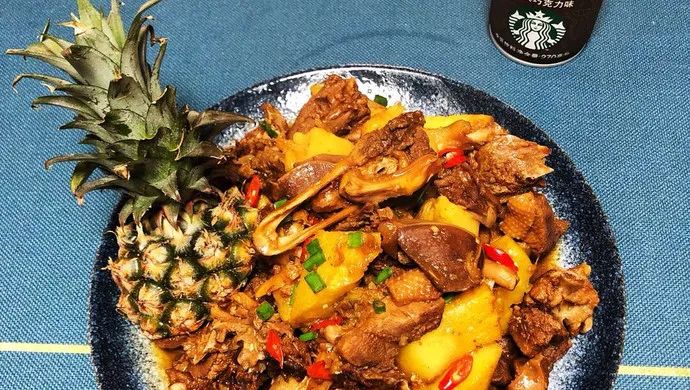
Ingredients: 1 cleaned duck, 250g of pineapple (Bo Luo), 50g each of onion, celery, carrot, and lard, 200g of pineapple juice, 5g each of peppercorns and fine salt, 100g of yellow wine (Huang Jiu), and monosodium glutamate and fresh broth to taste.
Method: First, clean the duck and remove the internal organs. Marinate it with yellow wine, coarse salt, monosodium glutamate, fresh broth, and pepper for about 2 hours. Heat lard in a wok, fry the duck until it is browned on all sides, then drain the oil. Add pineapple juice, yellow wine, onion, and carrot, and simmer for 10 minutes. Then add fresh broth, bring to a boil, and reduce to low heat, stewing until the duck is cooked and the sauce is thick. Serve the duck upright on a plate, garnished with pineapple slices and celery leaves, and drizzle with the original sauce.
Effects: The pineapple is fragrant, the duck meat is tender, and it nourishes yin and tonifies qi.
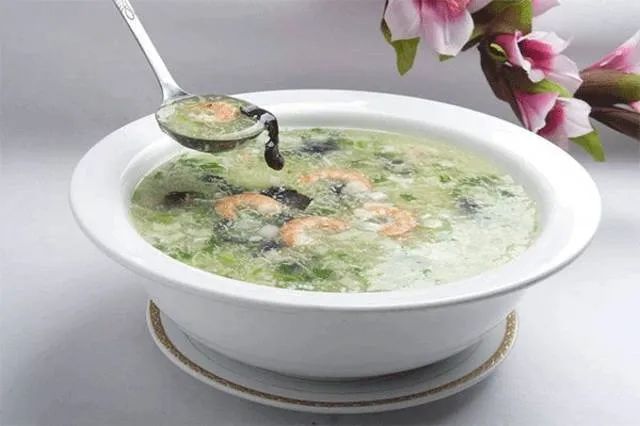
Shrimp and Sea Cucumber Soup

Ingredients: 100g of fresh shrimp (Xia Ren), 200g of soaked sea cucumber (Hai Shen), 50g of lean pork (Shou Rou), 6g of goji berries (Gou Qi Zi), 1 slice of ginger (Sheng Jiang), and salt to taste.
Method: First, shell the fresh shrimp, remove the intestinal tract, wash, and drain. Clean and slice the sea cucumber and lean pork. Rinse the goji berries and ginger. In a clay pot, add an appropriate amount of clean water, bring to a boil over high heat, then add the goji berries, sea cucumber, lean pork, and ginger slices. Reduce to medium heat and continue to simmer for about 30 minutes, then add the shrimp and simmer for another 20 minutes. Finally, add salt to taste.
Effects: Soft and rich, nourishes the kidneys, moistens yin, and benefits the eyes.

Autumn Dietary Precautions
In the morning, drink porridge. Traditional Chinese Medicine (TCM) believes that drinking porridge in the morning has good effects on strengthening the spleen and stomach and replenishing qi, especially with medicinal porridge such as sugarcane porridge, yam porridge, and adenophora porridge. Reduce spicy foods and increase sour foods. TCM holds that in autumn, excessive lung qi can harm the liver, so in autumn, it is necessary to “increase sour” to enhance liver function and resist the invasion of excessive lung qi. “Reduce spicy and increase sour” means to eat less spicy foods like scallions, ginger, garlic, and chili; and to eat more sour fruits such as apples, grapes, pomegranates, starfruit, lemons, pomelos, hawthorn, and loquats. Avoid bitterness and dryness. The Su Wen states: “Eating too much bitterness leads to dry skin and hair loss.” In autumn, the dryness is prevalent, and the lungs are delicate, easily affected by autumn dryness. Many chronic respiratory diseases often recur or worsen in autumn. Therefore, autumn dietary practices should avoid bitterness and dryness. Combine light and nourishing foods. In simple terms, eat more foods that are moistening and mildly sweet, such as honey, sesame, and almonds, which can both nourish the spleen and stomach and moisten the lungs and intestines, preventing symptoms like dry cough, dry throat, and constipation caused by autumn dryness. Regarding hydration, due to the dryness of autumn, it is important to drink more water. It is best to drink a glass of water after getting up in the morning to improve the body’s relative state of dehydration, which is particularly beneficial for those with hypertension, cardiovascular diseases, and constipation. Source: Public Health GuideEditor: Lü JunyiReviewer: Zhao XiaoqingAudit: Liang Ku
Source: Public Health GuideEditor: Lü JunyiReviewer: Zhao XiaoqingAudit: Liang Ku

